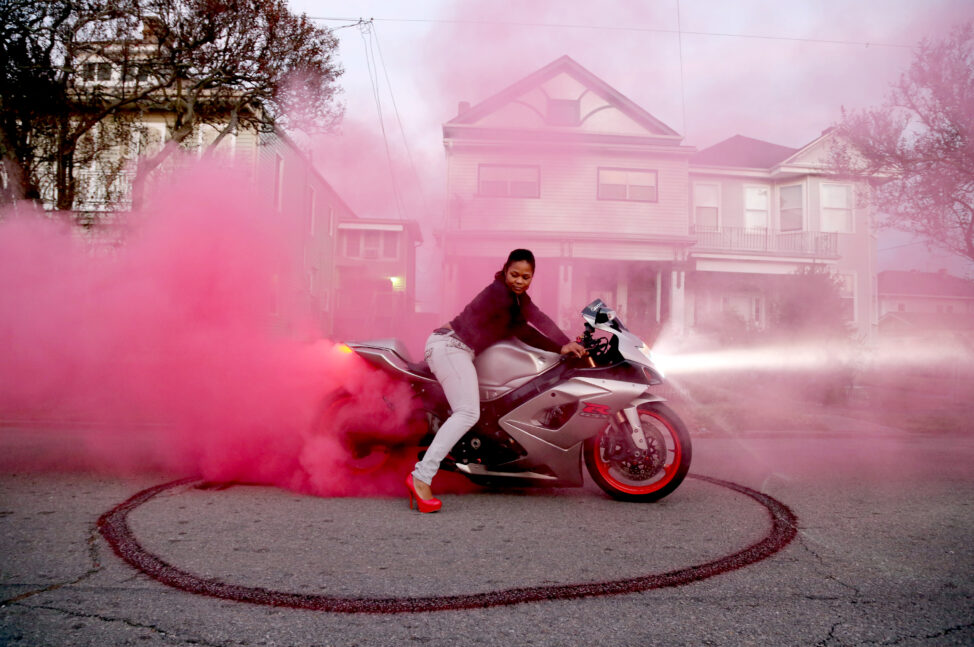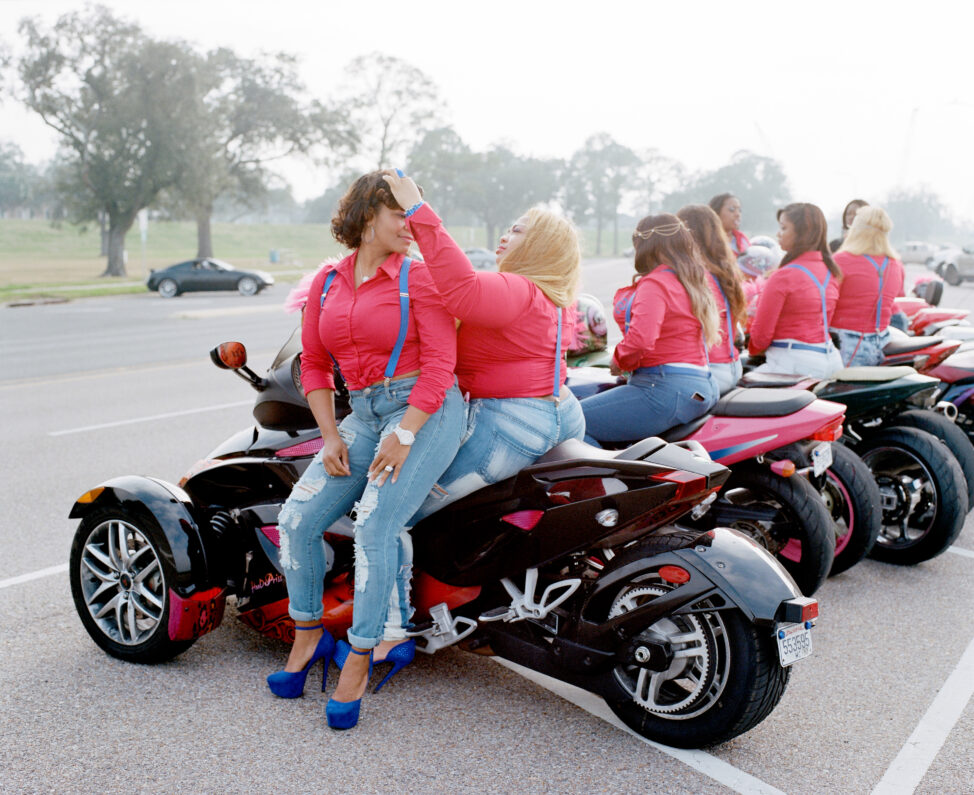Akasha Rabut
US
-

Caramel Curves - Candi burning a circle into the street with her tire - 2012 - 2018 - Photographic series [Detail] -

Caramel Curves - Candi sits on Hood Priss's lap as Hood Priss fixes her hair - 2012 - 2018 - Photographic series [Detail]
Akasha Rabut, born in 1981 in Cardiff by the Sea, California, embarked on a journey that transcends borders and cultures from an early age. At nine months old, her family moved back to Hawai’i. In Hawai’i she absorbed the vibrant tapestry of island life. Raised amidst the lush landscapes of Kaua’i until the age of four, her formative years were shaped by the rhythmic ebb and flow of Pacific island culture. Following her parents’ divorce, Akasha split her time between Kaua’i and California, navigating the complexities of dual identity and heritage. Her mother’s Dutch/German-American roots and her father’s Filipino ancestry intertwine to form the rich fabric of her lineage. Rooted in the legacy of her paternal family, who migrated to Hawai’i in the early 1900s as sugar plantation laborers, Akasha draws profound inspiration from their experiences and the landscapes that bore witness to their resilience. Much of Akasha Rabut’s artistic vision is steeped in the narratives of her family’s history, particularly their roles as plantation laborers—a testament to their endurance and the legacies they forged amidst adversity. Her work serves as a poignant reflection of the intersectionality of identity, memory, and place. Currently, Akasha resides between New Orleans, Louisiana, and Kaua’i, Hawai’i.
Caramel Curves, 2012 – 2018
The Caramel Curves stand as a testament to resilience and sisterhood in the face of adversity. Originating as the first all-female African American motorcycle club in New Orleans, their formation preceding the devastation of Hurricane Katrina underscores their enduring spirit amidst turmoil. Despite displacement, in 2011, six original members reunited, reigniting the flame of their collective identity. Navigating within a motorcycle world predominantly male and white, the Caramel Curves challenge boundaries entrenched by race and gender. Their presence disrupts norms, inviting scrutiny and resistance merely because of their intersectional identities as black women. Yet, within their diverse backgrounds, from sex workers to doctors, they find unity, forming a sisterhood that fosters independence and mutual support. They not only traverse the terrain of motorcycle culture but also extend their impact to uplift their community, organizing toy drives and fundraisers to aid women in need. Capturing the essence of the Caramel Curves and communities alike is an act of resistance against the pervasive systems of colonization and capitalism. Photography allows me to dismantle these structures of power by amplifying the voices and stories of people of color, particularly women, who have historically been marginalized and overlooked. By showcasing their strength, resilience, and agency, I strive to contribute to the ongoing narrative of empowerment and liberation. My approach to photography is more than just documentation; it’s a means of uplifting communities, and a tool for challenging entrenched systems of oppression. Through my work, I aim to participate actively in the disruption of oppressive power dynamics, fostering spaces where diversity, equity, and justice thrive.